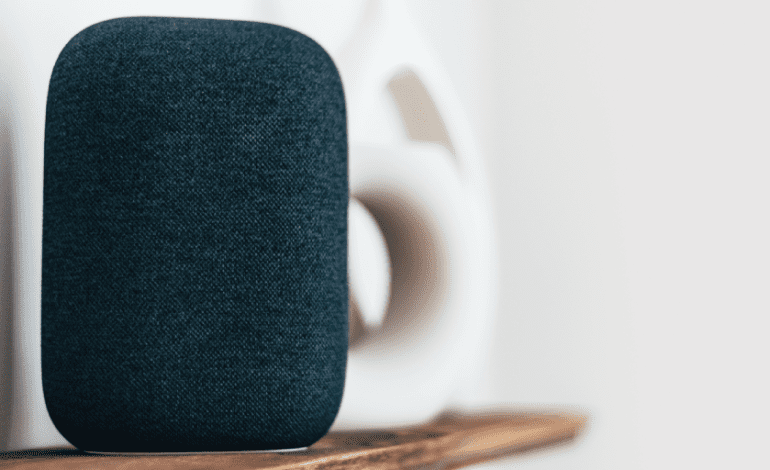Voice commerce is a novel developing channel in which customers converse with virtual assistant systems on smart speakers or other internet-connected devices such as mobile phones or tablets, using their voice to search and purchase a product on an eCommerce or mCommerce store. This system is an artificial intelligence-based technology that allows you to manage purchases at online stores without having to make physical or visual contact with the device.
With voice recognition technology getting more powerful in recent years, smart speakers such as Amazon’s Echo, Google Home, Apple’s HomePod, Samsung’s Bixby, and Microsoft’s Cortana are becoming increasingly popular.
Voice commerce is a technology that allows consumers to conduct internet purchases and transactions by simply speaking. Voice commerce is now at the forefront of technical progress in the ecommerce business, having transformed how customers navigate the internet and connect with brands.
For example, if a person has a smartphone or tablet with a voice command interface (VCI), or devices such as Amazon Alexa and Apple HomePod, he or she can input a voice command to access a product catalogue, check the rating of a certain item, place an order, and even pay for a purchase. Because it substantially simplifies and accelerates the traditional shopping experience, voice commerce is a win-win for both brands and customers.
We will now consider 5 voice commerce companies and examples you must know about.
1. Google Shopping Actions
Google Shopping Actions is a tool that allows retailers to sell their products on Google’s search engine, Home, Assistant, and Express mobile app with voice-enabled shopping. Retailers can apply to join the program and get a list of stores using voice commands free of charge. There will be only a commission fee for each item sold.
According to Google Ads Manager, depending on the item category, the commission rates fluctuate from 5-20% with an average of 12%. Although there are no costs to list any products on Google Shopping Actions, retailers need to have a minimum spend budget to take part in the program.
Through Google Shopping Actions services, the advertisers get a universal shopping cart, a shareable list, and real-time checkouts. Google Shopping Actions have some excellent benefits as customer data, which includes name, email address, and shipping address of users, allowing further engagement with customers on promotions and sales.
Benefits also include personalized product recommendations to all consumers, allowing them to easily reorder and build baskets of products based on purchase history. Last but not least, customer support and returns are handled by Google, lowering administrative costs.
2. Alexa Skills Gallery
With Alexa, Amazon has created a new connection between businesses and consumers through the newly created voice commerce channel. According to Amazon’s website, something like Skills can help you do more with Alexa devices through voice commands.
Read Also: Voice Over Requirements
They are used for playing games, listening to podcasts, relaxing, meditating, ordering food, and much more. There are tens of thousands of skills available in the Skills Store, and one of them is shopping.
In the shopping category, consumers can search best buy and sell, check for special deals or request tracking information. Consumers can ask Alexa for products and confirm the order by simply saying ‘yes.’
And yes, Amazon affiliate programs and services are free of charge.
3. Sirikit
Sirikit is a program that permits iOS apps and watchOS apps to work with Apple’s voice assistant Siri network. It allows conversational shortcuts to get even more done. A user can ask Siri to book a flight, order a takeout, order a grocery, and much more. To suggest convenient apps, Siri will pair routines of users with their apps.
According to Apple’s website, users can display visual information by voice commands. For instance, when a user asks to add groceries to their cart, Siri can show a picture, price, and description for each item.
4. Bixby Development Center
Bixby Development Center is a platform for developers to collaborate with Samsung to create, test, and submit new capabilities to the Bixby network.
It’s a Samsung’s voice assistant that can perform tasks like:
- Sending text messages
- Responding to questions about the weather
- Upcoming meetings
- Sports scores
- Movie showtimes
- Settings menus
- Camera app
- Contacts list
- Accessing gallery
The platform has been offering access to a wide range of design guides, writing dialogue and quick overviews for those that wish to develop for Bixby.
5. Cortana
Cortana is Microsoft’s voice assistant that features many capabilities and it’s super useful for the work environment to help Windows 10 PCs users. According to Microsoft’s website, Cortana is used by more than 150 million users and it supports Android and iOS devices. Windows Mixed Reality Headsets, Xbox, the Edge browser, thermostats, and smart speakers.
Cortana is capable of doing voice assistance including search, machine learning, and natural language understanding that will allow users to operate productivity with an increasing degree of complexity.
It makes lists, pulls information from LinkedIn for participants in an upcoming meeting, creates a leisure planner for upcoming travel reservations, and recommends activities automatically.
As Cortana is integrated with Windows 10 and Microsoft productivity applications. Users can set up meetings and reminders with their voice. Cortana also automatically suggests reminders when the service is connect to Office 365, Outlook, or Gmail.
The success of a voice commerce development project is heavily dependent on your understanding of your ecommerce firm, its technological capabilities, and your consumers’ behaviour and preferences. As a result, it is preferable to begin with a thorough business analysis, which will assist you in determining whether voice commerce is viable for your business case, what your project goals are, and whether your in-house team has the necessary expertise to execute the technology.
You might begin by asking the following questions to your IT employees, marketing managers, and sales representatives:
- What does our existing customer journey look like? Will voice commerce help us streamline it?
- Should we implement voice commerce only for smartphones? Can targeting smart speaker users be more relevant?
- Which hardware provider should we choose and why?
- Can we develop voice commerce software from scratch? Which voice commerce platform should it be compatible with?
- How should we integrate the voice commerce system into our existing ecommerce architecture?
- How can we optimize our products for voice commerce?
The answers to these and other questions will help you decide whether you should initiate a software development project and where it would be better to start. In case you are unsure about your project idea, do not hesitate to consult with voice commerce technology experts.


